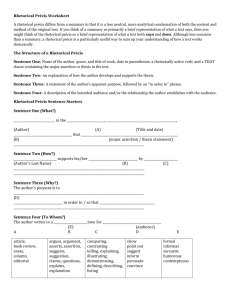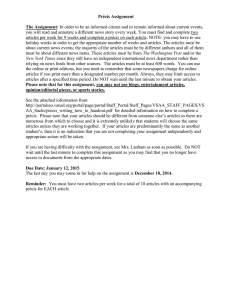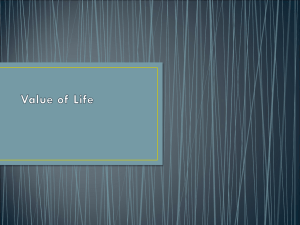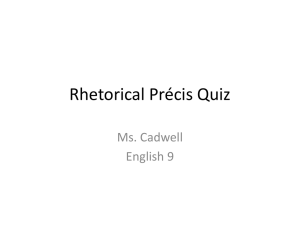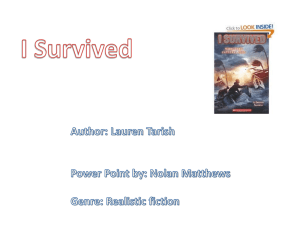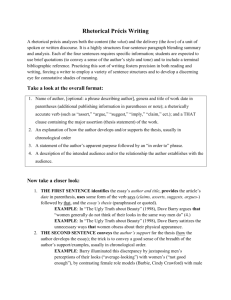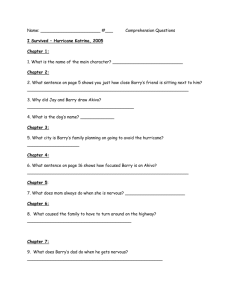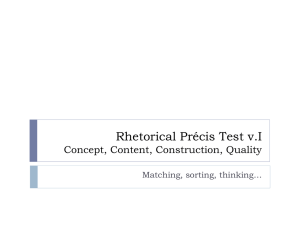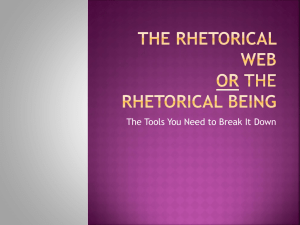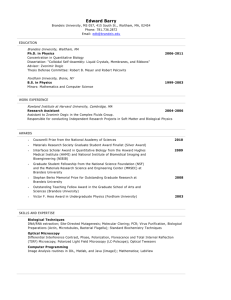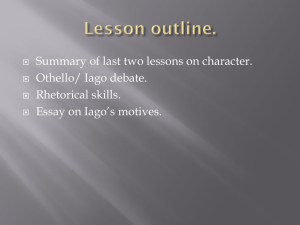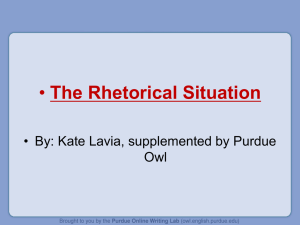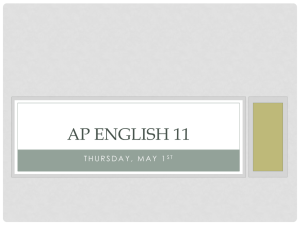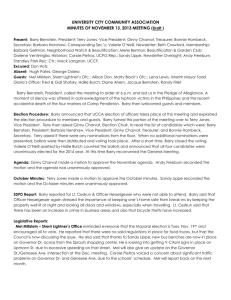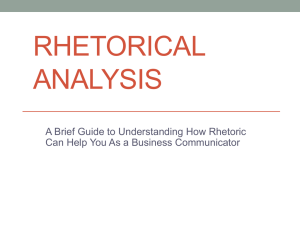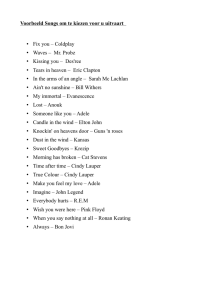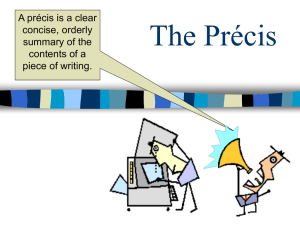FUN WITH THE Rhetorical Pr_cis general
advertisement
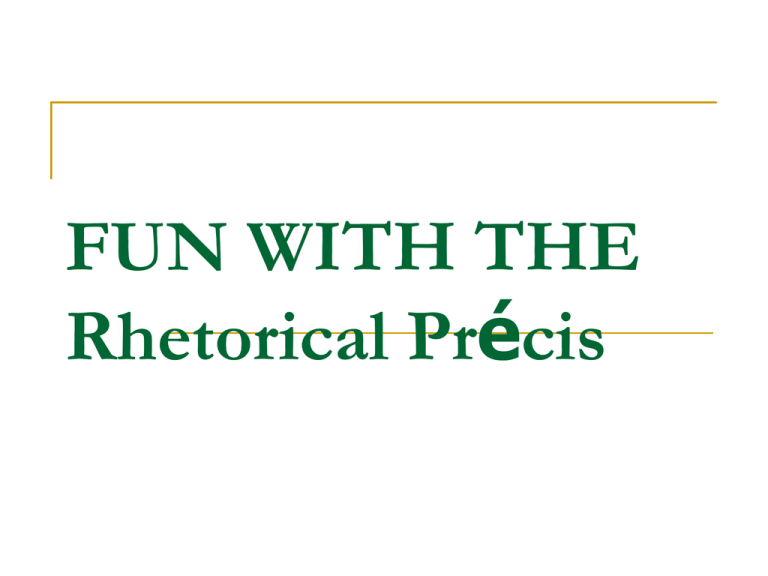
FUN WITH THE Rhetorical Précis Rhetorical Précis A four-sentence paragraph that records essential rhetorical elements Combines summary and analysis in a succinct form Sentence 1 Name of author, the genre and title of the work, date in parentheses a rhetorically accurate “says” verb and a “THAT” clause containing the major assertion (thesis statement) of the work. This is a shortened version of the author’s purpose or main idea Sentence 1 In the essay, “The Ugly Truth about Beauty” (1998), Dave Barry argues that “women generally do not think of their looks the same way men do” Sentence 2 An explanation of how the author develops and/or supports the thesis Use chronological order place examples in (parenthesis) and use only 2-3 word phrases Sentence 2 Barry illuminates this discrepancy by juxtaposing men’s perceptions of their looks (“average-looking”) with women’s (“not good enough”), by contrasting female role-models (Barbie, Cindy Crawford), and by comparing men’s interests (the Super Bowl, lawn care) with women’s (manicures). Sentence 3 A statement of the author’s apparent purpose, followed by an “IN ORDER TO” phrase in which you explain what the author wants the audience to do or feel as a result of reading the work. There should be a short quote or paraphrased section from the piece to prove your point Sentence 3 He exaggerates and stereotypes these differences in order to discourage women from so eagerly accepting society's expectation of them; in fact, Barry claims that men who want women to "look like Cindy Crawford" are "idiots". Sentence 4 A description of the intended audience and/or the tone relationship the author establishes with the audience. Sentence 4 Barry seems to address men in this essay because most of his “yous” refer to men (as in "If you're a man"); however, by using humor to poke fun at men's perceptions of themselves, Barry seems to want to address women and stop them from obsessively "trying to look like Cindy Crawford". Rhetorical Précis 1. Author, genre, title, date, “_(says)_ that” Rhetorical Précis 1. Author, genre, title, date, “_(says)_ that” 2. Support and development Rhetorical Précis 1. Author, genre, title, date, “_(says)_ that” 2. Support and development 3. Author’s purpose, “in order to…” Rhetorical Précis 1. Author, genre, title, date, “_(says)_ that” 2. Support and development 3. Author’s purpose, “in order to…” 4. Describes audience and tone (with support) The Finished Product In the essay, “The Ugly Truth about Beauty” (1998), Dave Barry argues that “women generally do not think of their looks the same way men do.” Barry illuminates this discrepancy by juxtaposing men’s perceptions of their looks (“averagelooking”) with women’s (“not good enough”), by contrasting female role-models (He-Man, Buzz-Off), and by comparing men’s interests (the Super Bowl, lawn care) with women’s (manicures). He exaggerates and stereotypes these differences in order to discourage women from so eagerly accepting society's expectation of them; in fact, Barry claims that men who want women to "look like Cindy Crawford" are "idiots". Barry seems to address men in this essay because most of his “your” refer to men (as in "If you're a man"); however, by using humor to poke fun at men's perceptions of themselves, Barry seems to want to address women and stop them from obsessively "trying to look like Cindy Crawford".
